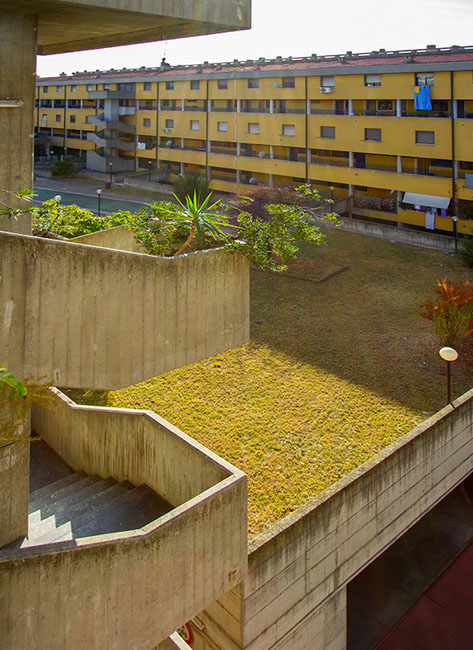Corso XXII Marzo Milan (IT)
Antonio Pellegrini and Gianni Celada
Abstract
As you walk along Corso XXII Marzo, coming from the Madonnina that overlooks Milan, the regular rhythm of the quiet late nineteenth-century façades is suddenly interrupted. A brutalist concrete corner, adjacent to a prototypical building block in the urban plan of Cesare Beruto, lets you glimpse through it into a courtyard. On entering this space, something remarkable happens: you are suddenly teleported from a nineteenth-century perimeter block into what seems to be a long U-shaped 1970s housing project.
In 1982, the municipality of Milan instructed a group of architects led by Gianni Celada to redesign one of the few – partly decrepit – social housing bastions located in a rapidly gentrifying area. Celada, who had studied with Ernesto Rogers, suggested developing the project along two lines: urban continuity and typological research.

